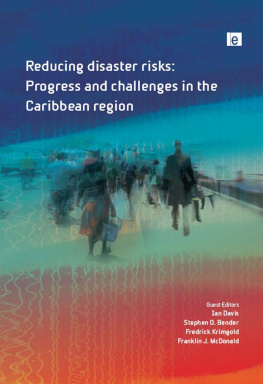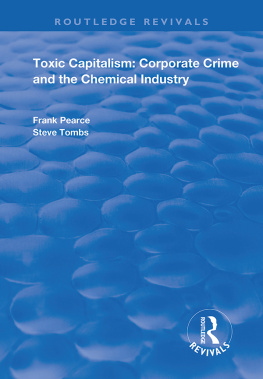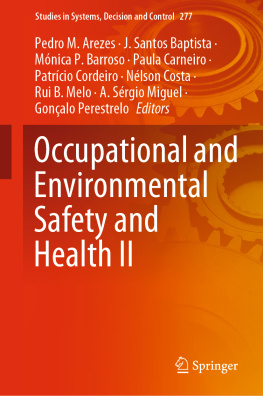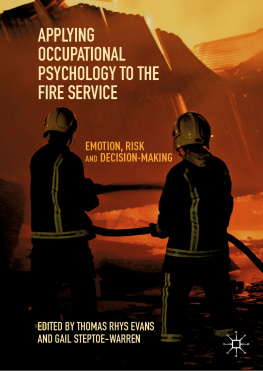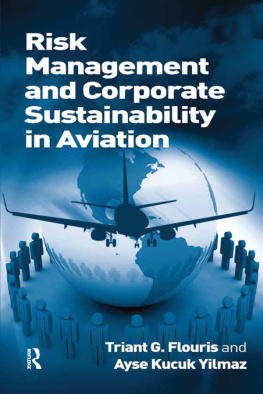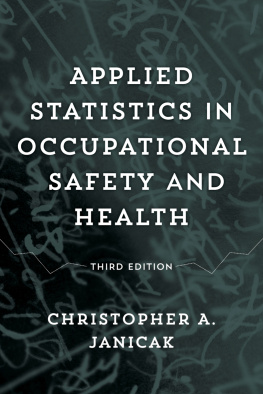The Subjectivities and Politics of Occupational Risk
The Subjectivities and Politics of Occupational Risk links restructuring in three industries to shifts in risk subjectivities and politics, both within workplaces and within the safety management and regulative spheres, and examines the conflict and changes in law, political discourses and management approaches that often result. The state and corporate governance emphasis on worker participation and worker rights, internal responsibility, and self-regulative technologies are understood as corporate and state efforts to reconstruct control and responsibility for Occupational Health and Safety (OHS) risks within the context of a globalized neoliberal economy. Part 1 presents a conceptual framework for understanding the subjective bases of worker responses to health and safety hazards using Bourdieus concept of habitus and the sociology of risk concepts of trust and uncertainty. Part 2 demonstrates the restructuring arguments using three different industry case studies of multiple mines, farms and auto parts plants.
The final chapter draws out the implications of the evidence and theory for social change and presents several recommendations for a more worker-centred politics of health and safety. The book will appeal to social scientists interested in health and safety, work, employment relations and labour law, as well as worker advocates and activists.
Alan Hall recently retired from the Department of Sociology at Memorial University where he now holds an Honorary Research Professor position. His most recent 2020 publications are a co-authored book on employment standards published by University of Toronto Press, and an article in Economic and Industrial Democracy on vulnerable workers.
Routledge Advances in Sociology
290 Classifying Fashion, Fashioning Class
Making Sense of Womens Practices, Perceptions and Tastes
Katherine Appleford
291 Women and Work in Ireland
A Half Century of Attitude and Policy Change
Margret Fine-Davis
292 Housing and Domestic Abuse
Policy into Practice
Yoric Irving-Clarke and Kelly Henderson
293 Mobilising Place Management
Claus Lassen and Lea Holst Laursen
294 International Labour Migration to Europes Rural Regions
Edited by Johan Fredrik Rye and Karen OReilly
295 The Subjectivities and Politics of Occupational Risk
Mines, Farms and Auto Factories
Alan Hall
296 Civil Society
Between Concepts and Empirical Grounds
Edited by Liv Egholm and Lars Bo Kaspersen
297 The Economy of Collaboration
The New Digital Platforms of Production and Consumption
Francesco Ramella and Cecilia Manzo
For more information about this series, please visit: https://www.routledge.com/Routledge-Advances-in-Sociology/book-series/SE0511
First published 2021
by Routledge
2 Park Square, Milton Park, Abingdon, Oxon OX14 4RN
and by Routledge
52 Vanderbilt Avenue, New York, NY 10017
Routledge is an imprint of the Taylor & Francis Group, an informa business
2021 Alan Hall
The right of Alan Hall to be identified as author of this work has been asserted by him in accordance with sections 77 and 78 of the Copyright, Designs and Patents Act 1988.
All rights reserved. No part of this book may be reprinted or reproduced or utilised in any form or by any electronic, mechanical, or other means, now known or hereafter invented, including photocopying and recording, or in any information storage or retrieval system, without permission in writing from the publishers.
Trademark notice: Product or corporate names may be trademarks or registered trademarks, and are used only for identification and explanation without intent to infringe.
British Library Cataloguing-in-Publication Data
A catalogue record for this book is available from the British Library
Library of Congress Cataloging-in-Publication Data
A catalog record has been requested for this book
ISBN: 978-0-367-46995-5 (hbk)
ISBN: 978-1-003-03268-7 (ebk)
Typeset in Times New Roman
by codeMantra
This book is dedicated to all workers in Canada who have suffered injury and death in their workplaces, and to all those worker representatives and activists who have struggled diligently to improve their workplaces.
I thank my colleagues for their crucial participation in the research data collection, including Dr Anne Forrest (University of Windsor) and Dr Alan Sears (Ryerson University) for the auto study research and Dr Veronica Mogyrody for the organic farm study research. For the accident and injury reporting study, thanks to Dr Tanya Basok (University of Windsor), Dr Jamey Essex (University of Windsor) and Dr Urvashi Soni Sinha (University of Windsor) for their work. For their invaluable contributions to the second worker representative study, thanks to Andy King (USWA), Dr Wayne Lewchuk (McMaster University), Dr John Oudyk (OHCOW) and Dr Syed Naqvi (OHCOW). A special thanks as well to several research assistants who worked on these studies, especially Dr Susan Sverdup-Phillips and Niki Carlan. I also wish to acknowledge the funding received from the Social Science and Research Council Canada, Auto21, the University of Windsor Environmental Centre and the Ontario Workplace Safety and Insurance Board. A major expression of gratitude to all the workers, farmers, union officials, managers and others who participated in these studies. I have always felt that I failed to fully present your voices in my previous work and I hope this presentation rectifies that failure. Finally, a special thanks to my partner, Lynne Phillips, who has cheerfully endured my frustration and grumpiness while encouraging the completion of this work.
CAWCanadian Auto Workers UnionCFCut and Fill Mining MethodCFIBCanadian Federation of Independent BusinessCWSClassification Wage System (INCO)HRMHuman Resources ManagementIAPAIndustrial Accident Prevention AssociationIRSInternal Responsibility SystemISOInternational Safety OrganizationKAKnowledge Activist Reps.LOARCLabour, OHCOW and Academics Research CollaborationLSILost Time InjuriesMAMedical Aid Injuries without Lost TimeMAPAOMining Accident Prevention Association of OntarioMSDMusculo-Skeletal DisorderOFSAOntario Farm Safety AssociationOHCOWOccupational Health Clinics for Ontario WorkersOHSOccupational Health and SafetyOHSAOccupational Health and Safety ActOMAFOntario Ministry of Agriculture and FoodOMOL/MOLOntario Ministry of LabourONAOntario Nurses AssociationOPSEUOntario Public Service Employees UnionPAPolitical Activist Reps.QWLQuality of Work LifeReps. OHSRepresentativesRSIRepetitive Strain InjuryRTRisk TheorySFSafety FirstSFTSocial Field TheorySMScientific ManagementTLTechnical-Legal Reps.TLVThreshold Limit ValuesUCFUndercut and Fill Mining MethodUFCWUnited Food and Commercial Workers International UnionUSWAUnited Steelworkers of AmericaVRMVertical Retreat MiningWACWorkers Action Centre (Toronto)WWACWindsor Workers Action CenterWHSCWorkers Health and Safety CentreWOHISWindor Occupational Health Information ServiceWOSHWindsor Occupational Safety and Health Group
Though they rarely garner the headlines of a terrorist bombing, workplace injuries can be just as horrific. The young summer student who is torn apart in a large mixing machine, the middle-aged worker whose scalp is ripped from her head when her hair is caught in a machine or the older worker who is burnt to ashes in a blast furnace, each event unspeakable in terms of the pain and horror for the persons involved, to speak nothing of the victims families, co-workers and friends (Dudgeon, 2016). Workplace-contracted diseases such as asbestosis or silicosis are no less disturbing (Leyton, 1975: Storey and Lewchuk, 2000). The slow painful deterioration and death that many workers and their families are forced to endure make one wonder if the people who suffer a quick accidental death are the lucky ones. Even those who live through the excruciating pain of non-fatal chronic ailments from musculoskeletal degeneration (MSDs) to repetitive injuries (RSIs) making life a living hell for many may well pause to wonder if the living workplace victims are the ones who drew the short straws (Beardwood, Kirsh and Clark, 2005; Tarasuk and Eakin, 1995). Of course, thinking about which is worse the quick fatal insult or the agonizing deterioration of the body is not what is on the minds of most injured workers or their families. Along with getting through each day, for them the nagging question is why did this happen?


